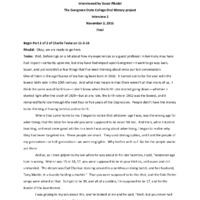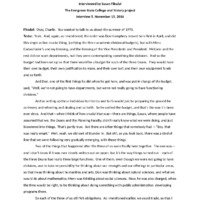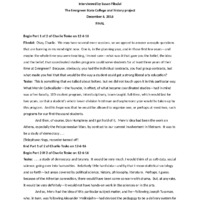Charlie Teske Oral History Interview
Item
- Identifier
- Title
- Date
- Creator
- Contributor
-
TeskeCharlie
-
Charlie Teske Oral History Interview
-
January 16, 2011
-
March 16, 2016
-
November 8, 2016
-
November 10, 2016
-
November 15, 2016
-
November 22, 2016
-
December 6, 2016
-
June 29, 2017
-
Charlie Teske
-
Susan Fiksdal
- Media
 TeskeCharlie_20110116_Transcript_pt1.pdf
TeskeCharlie_20110116_Transcript_pt1.pdf TeskeCharlie_20160316_Transcript_pt2.pdf
TeskeCharlie_20160316_Transcript_pt2.pdf TeskeCharlie_20161108_Transcript_pt3.pdf
TeskeCharlie_20161108_Transcript_pt3.pdf TeskeCharlie_20161110_Transcript_pt4.pdf
TeskeCharlie_20161110_Transcript_pt4.pdf TeskeCharlie_20161115_Transcript_pt5.pdf
TeskeCharlie_20161115_Transcript_pt5.pdf TeskeCharlie_20161122_Transcript_pt6a.pdf
TeskeCharlie_20161122_Transcript_pt6a.pdf TeskeCharlie_20161122_Transcript_pt6b.pdf
TeskeCharlie_20161122_Transcript_pt6b.pdf TeskeCharlie_20161206_Transcript_pt7.pdf
TeskeCharlie_20161206_Transcript_pt7.pdf TeskeCharlie_20170629Part8_Transcript.pdf
TeskeCharlie_20170629Part8_Transcript.pdf
Position: 359 (12 views)